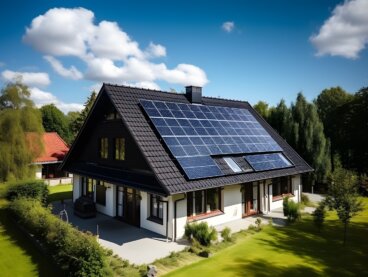Benefits of Having an Induction Cooktop

Nowadays, it’s very important to take care of your diet. This isn’t just through a healthy diet, but also through preparing food well. Therefore, we’re going to tell you the benefits of having an induction cooktop.
There are many first-class appliances that are comfortable to use and safe. You’ll be able to enjoy the best technological features that big brands have to offer and leave behind the more archaic resources.
More and more people prefer a state-of-the-art cooking system. This appliance helps to prepare sophisticated recipes that will dazzle your guests. Let’s put any worries aside and dive into new developments.
Main characteristics of an induction cooktop

When designing a kitchen, we highly recommend an induction cooktop. It’s made up of a large plate where you can heat different things simultaneously. They are generally black, although you can also find them in white and gray.
The most common size is 2 feet by 2 feet. However, they can also be longer. It’s possible to buy ones that are slightly elevated or are the same height as the countertop.
The main characteristic is that there is a magnetic field that generates heat quickly to produce a more effective cooking process that requires less effort.
Induction cooktops are increasingly common in homes.
5 benefits of an induction cooktop

Once you know the main features, it’s time to evaluate the benefits. You might have doubts before you invest in a high-end resource that’ll give you the most appetizing results.
- One of the most remarkable features is how quickly it heats water. This cooktop can boil water in a few minutes. Therefore, you can cook faster.
- It reduces energy consumption. The cooktop offers energy efficiency mainly because, as it cooks faster you need to have the stove turned on for less time. In the long term, you’ll notice the financial difference.
- As the heat is generated in the base of the pan, you can clean the surface as soon as you finish. It’s not necessary to wait for the stovetop to cool down. This saves you a lot of time.
- This is a smart system. You can program the stove. For example, you can set it to turn off after a set time and there are even some models that you can control from your phone.
- You need to use specific pans for induction cooktops. For example, if you have a household pan that you think you might be able to use, it’s best to ask a specialist. Stainless steel is fine.
Differences between induction cooktops and an electric stove

Both styles have a clear similarity, such as size, aesthetics, and how you use them. However, here are some differences you should consider.
As we mentioned above, an induction cooktop allows you to cook faster. It can boil water in just 4 minutes while an electric stovetop takes 11 minutes. This means an electric one uses more energy than an induction cooktop.
In addition, you have to wait until an electric stovetop cools down before you can clean it, which can add to your cooking and cleaning time.
Finally, one of the points of induction is its high price. But it’s worth the investment. Of course, you shouldn’t forget that, in the long term, saving energy balances out the cost.
New advances in induction cooktops
Of course, there are new advances linked to home automation that we’ve seen from big brands, such as Panasonic or Siemens. These offer the option not just to heat and adjust the temperature, but to also act as a scale and tell you the weight of the food.
There are also options to link the cooktop to your phone, so you can control it from another room.
Finally, you can display recipes on the screen. How amazing is that?
All cited sources were thoroughly reviewed by our team to ensure their quality, reliability, currency, and validity. The bibliography of this article was considered reliable and of academic or scientific accuracy.
- AA. VV.: Electrotecnia, Akal, 2001.








